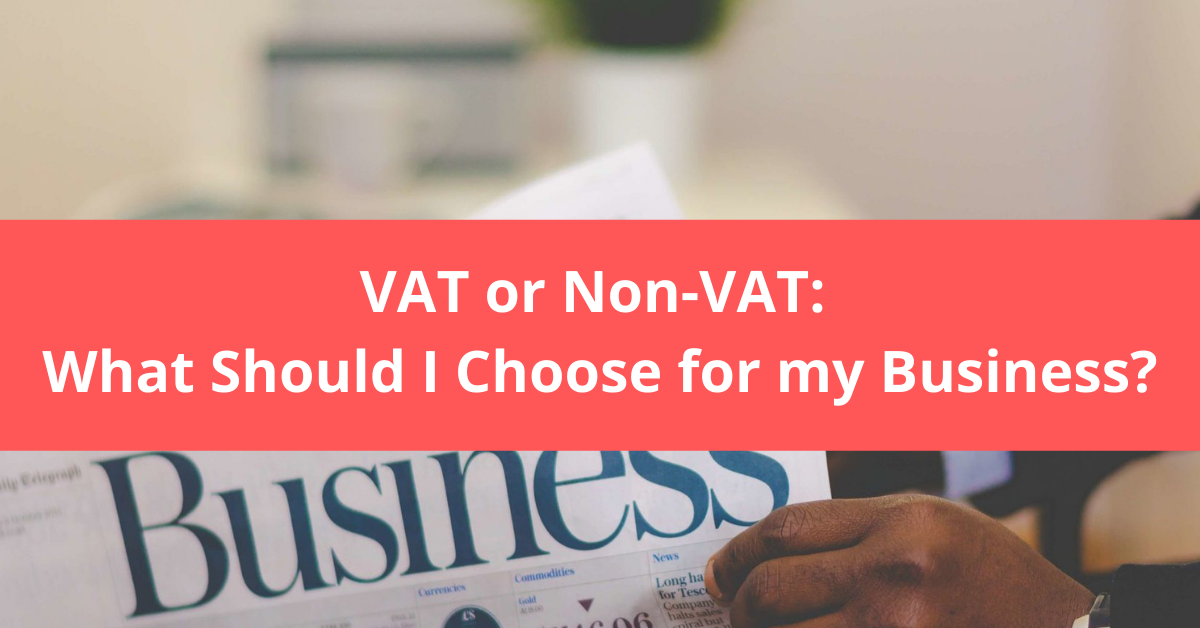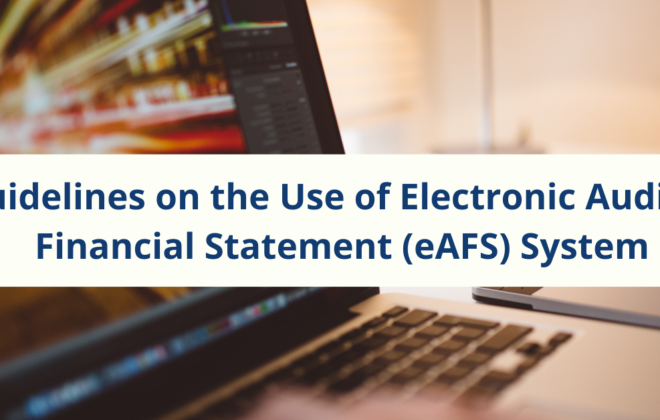VAT or Non-VAT: What Should I Choose for my Business?
One of the important decisions you must make when you register your business with BIR is choosing the tax type that you want to be classified under. One of which is choosing whether you’ll register as a Value-Added Tax (VAT) or a Non-VAT entity.
As a new business owner, you have to manage your expectations that whatever classification you choose, all options involve additional expenses as you will consequently pay for the applicable taxes according to your preferred tax type.
Who is allowed to register as Non-VAT or VAT taxpayer?
Under Section 109 of the National Internal Revenue Code (NIRC) as amended by TRAIN Law, the following are allowed to register as Non-VAT taxpayers:
- Self-employed individuals;
- Professional individuals – earning purely compensation income
- Mixed-income earners – earning mixed-income both from compensation and business or practice of a profession
- Total gross receipts or gross sales and other non-operating income should not exceed 3M pesos.
- Tax Rate – 8% flat rate of total Income or Graduate Income Tax Rate
Meanwhile, Section 236 of NIRC as amended states that any person who in the ordinary course of trade of business sells, barters, exchanges, leases goods or properties, renders goods or services and any person who imports goods and with an aggregate income exceeding 3 million pesos is automatically classified as a VAT taxpayer.
- Tax Rate – Graduated Income Tax Rate
Therefore, the only factor in classifying a taxpayer as VAT or Non-VAT is the 3 million gross sales or gross receipts for the taxable year.
How does VAT differ from Non-VAT?
To give you a more detailed perspective of the two concepts and help you decide the best tax option, we shall compare VAT to Non-VAT.
We want to make it clear that once you reach the VAT threshold of 3 million, there is no option for you to shift from VAT to non-VAT. Only non-VAT taxpayers are allowed to change their tax type to VAT.
Moreover, the tax type is irrevocable within three years. That means you cannot shift between the two tax types every year.
VAT
VAT is a business tax. It is also an indirect tax, which means the buyer of goods shoulders the burden. The seller remits the taxes.
Under VAT, the Input Tax, which is considered an asset, can be deducted from the total VAT payable. The taxpayer may also opt to request BIR for a refund.
Documentation under this tax type is tedious. VAT taxpayers must file the required returns every month. Moreover, the business should maintain six different kinds of books of accounts.
Non-VAT
For non-VAT, the Percentage Tax is also a business tax imposed upon those engaged in a trade or business or the practice of their profession.
Unlike VAT, Non-VAT is a direct tax based on gross sales or gross receipts, which means the one who pays should be the one to remit the taxes to the bureau.
The paperwork is simpler when you are a non-VAT taxpayer. You only have to file four tax returns during the taxable year and maintain the same number of books of accounts.
Summary of Differences of VAT or Non-VAT
| Category | VAT | NON-VAT/Percentage Tax |
| Tax Type | Business Tax | Business Tax |
| Income Threshold | more than 3 M | less than 3 M |
| Nature | Indirect Tax; Input/Output VAT | Direct Tax |
| Rate | VAT Rate -12% of Gross Sales or Receipts | Percentage Tax Rate – 3% of Gross Sales/Receipts |
| Income Tax Rate | Graduated Income Tax Rate | Have the option to avail anyone of the following:
* 8% of Gross Sales/Receipts *Graduated Income Tax Rate |
| Filing of Return | Monthly and Quarterly; 12 times in one year | Quarterly; 4 times in one year |
| Compliance | Ø Annual Registration Fee
Ø Books of Accounts: 1. Cash Disbursement Journal 2. Cash Receipts Journal 3. General Journal 4. General Ledger 5. Sales Journal 6. Purchase Journal
|
Ø Annual Registration Fee
Ø Books of Accounts: 1. Cash Disbursement Journal 2. Cash Receipts Journal 3. General Journal 4. General Ledger |
| Option to Change from VAT to non-VAT or vice-versa | Not allowed to change from VAT to Non-VAT upon registration | Can elect VAT upon registration and irrevocable within 3 years |
VAT or Non-VAT: What is more efficient?
Being a VAT-registered taxpayer is more complicated and tedious as far as BIR compliance is concerned. Still, you may enjoy lesser tax because the law allows the Input VAT as a deduction from the Output VAT.
Non-VAT, on the other hand, is somehow less complicated. The taxpayer only maintains four books and files tax returns four times per year.
Moreover, if the taxpayer opts for the 8% flat rate on gross sales or gross receipts, they may no longer pay the Percentage Tax.
So, if you are a professional, freelancer, sales agent, network marketer, or any form of business with gross sales of not more than three million, we would suggest registering your business as a non-VAT entity and availing of the 8% flat income tax rate.
However, it is still all up to you. You have to consider your projected income for the year. Suppose you initially register as non-VAT, but your gross sales or receipts are more than 3 million. In that case, BIR will assess you as a VAT taxpayer.
Then, you will have to change all your business forms, such as official receipts and other invoices. The sudden change would entail additional costs. And you will have to start all over again.
So, which side are you on? VAT or Non-Vat?
If you want to know more about BIR registration or tax compliance, please email us at info@djkaaccounting.com. We provide end-to-end assistance for all your business registration needs.
Recent Posts
- How to Process the Sworn Declaration Required by BIR for Electronic Marketplace Sellers
- Understanding Tax Compliance for e-Marketplace Businesses
- Who Needs to Submit GIS to the SEC?
- Understanding these Financial Ratios for Business Decision-Making Purposes
- What you Should Know about the Ease of Paying Taxes Act





